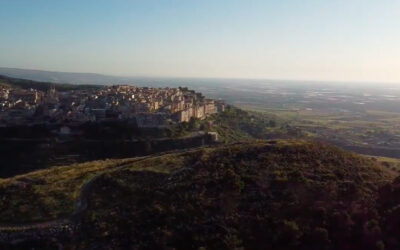A common concern expressed by many, including Cardinal Ratzinger, Bishop Krause and Bishop Kasper, Secretary of the Pontifical Council for the Promotion of Christian Unity, was the issue of how Justification could be explained to the people of today, and especially to young people. A meeting held on the vigil of the event, in St Ulrich’s Lutheran Church in Augsburg, provided the first response to this problem. 1700 young people attended the meeting promoted by the Ottmaring Ecumenical Centre. Bishop Kasper was also present. A young woman doctor, who had distanced herself from the faith, said: “Tonight’s rich program revealed a whole new face of the Church to me”. The style of the evening was definitely youthful. This is how the local daily newspaper, Augsburger Allgemeine, reported the event: “Rainbow-coloured balloons festooned the balustrade. Young people on stilts displayed a huge banner of welcome. Rock rhythms and other lively musical items displaced the solemn notes of the organ. The Lutheran Church, which was filled to capacity, hosted a forum for people of different Christian traditions. It made a lasting impression on those present. It was a profound meeting, open, sincere and to the point.” In the light of the Joint Declaration on the Doctrine of Justification, the meeting focussed on the burning issue of: “What gives value to our life?” A thunderous applause followed Chiara Lubich’s impassioned appeal: “If we love one another – Catholic Christians and Lutherans – then the Christian revolution will begin in Augsburg.” The founder of the Focolare Movement spoke passionately of God who is Love, revealing the beauty, the power and the harmony of a life immersed in His love which frees us and saves us from every great or small abyss we might have fallen into. Andrea Riccardi, founder of the St Egidio Community, gave a convincing example: “Imagine some prisoners on death row. The time has come for their execution. Suddenly a guard turns up, saying: ‘You have been given an amnesty! You’re all saved, all free, all pardoned!’ We too are prisoners of anguish, of selfishness, of wealth and of loneliness. We too need Someone to tell us: ‘You’re free, loved, justified’.” The Lutheran Bishop of Lübeck, Ulrich Wilckens, gave his own personal experience to illustrate this. He was 17 years old, a soldier living through the last days of the war in 1945. He found himself alone in a trench, ‘overcome by fear’. But as if ‘by a miracle’ the fear passed due to the faith confirmed in a pocket-size copy of the Sacred Scriptures he had taken with him. The whole evening was a real celebration, a historic moment defined by Bishop Wilckens as “a reconciliation of a family where the parents were divorced and now were re-united”. These young people showed themselves, in a sense, to be the most sensitive of all to this reconciliation which was symbolised by the embrace of Pastor Noko and Bishop Kasper of the Catholic Church at the moment of the historic signing. The gesture moved everyone very profoundly. A young person from the Lutheran church expressed the certainty that “a piece of the wall between Churches has fallen and from now on the era of unity will accelerate at a great pace.”
Don’t be indifferent towards others
Don’t be indifferent towards others




0 Comments